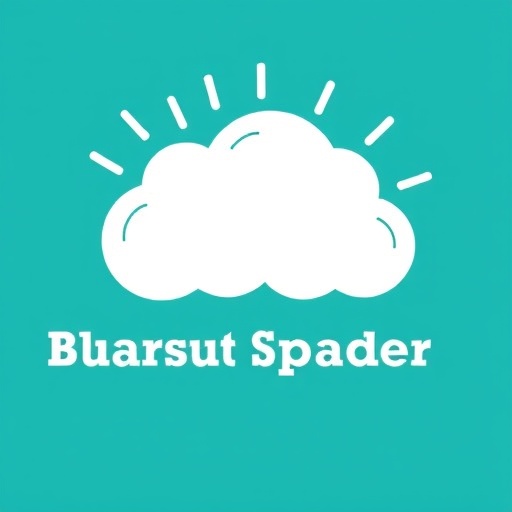In an increasingly demanding academic environment, the phenomenon of academic burnout among nursing students has garnered significant attention, reflecting broader societal concerns about mental health and well-being. A recent study led by researchers Li, Shi, and Wang delves into this pressing issue, shedding light on the prevalence of burnout among undergraduate nursing students and the factors that contribute to this alarming trend. Utilizing advanced random forest modeling techniques, the study highlights how various elements, such as workload, emotional well-being, and social support systems, interplay to shape students’ academic experiences.
Academic burnout is a multifaceted condition characterized by emotional, physical, and mental exhaustion due to prolonged stress. For nursing students, who are frequently subjected to rigorous academic standards and demanding clinical placements, the risk of burnout is particularly elevated. The study emphasizes that understanding the underlying factors of burnout is vital for developing targeted interventions to enhance students’ resilience and overall well-being.
Data were collected from a diverse sample of undergraduate nursing students through a comprehensive survey designed to measure academic burnout levels. The study employed random forest modeling, a sophisticated machine learning technique, to analyze the collected data. This approach enabled the researchers to identify key predictors of burnout, offering profound insights into how specific variables can influence students’ mental health. For instance, the researchers found that high academic workload served as a significant predictor of burnout, highlighting the need for curriculum adjustments in nursing programs.
Moreover, the findings revealed that emotional intelligence played a crucial role in mitigating burnout levels. Students with higher emotional intelligence were found to have a lower prevalence of burnout symptoms, suggesting that emotional skills training could be a valuable addition to nursing education. This evidence calls for a paradigm shift in how nursing programs are structured, focusing not only on academic performance but also on emotional and psychological resilience.
The study also investigated the impact of social support on academic burnout. It was noted that students who reported having strong support networks—whether from peers, family, or faculty—tended to experience lower levels of stress and burnout. This highlights the essential role of community in fostering student success and mental health, suggesting that educational institutions should promote collaborative environments that encourage friendships and mentorships among students.
Another critical finding of the study pertains to the role of self-care practices in alleviating burnout. Students who actively engaged in regular self-care routines—ranging from exercise to mindfulness activities—experienced enhanced emotional well-being. This evidence reinforces the importance of incorporating self-care education into nursing curriculums, empowering students to prioritize their mental health as they engage in rigorous training and demanding coursework.
As the nursing profession continues to evolve, the implications of academic burnout extend beyond the classroom. Burnout can lead to decreased academic performance, increased dropout rates, and ultimately, a shortage of qualified nurses in the healthcare system. This alarming possibility underscores the urgency of addressing academic burnout not only for the benefit of students but also for the future of healthcare delivery.
The study’s findings also resonate with broader societal trends, wherein mental health has become a pivotal issue in educational settings worldwide. Institutions are increasingly recognizing the need for mental health resources and support systems that can accommodate the diverse needs of their student populations. This research aligns with ongoing efforts to raise awareness about mental health in academia and encourages further discourse on how educational systems can adapt to better support students.
In light of these findings, the researchers advocate for the development of comprehensive strategies tailored to nursing education. Such strategies could include integrating mental health resources into academic frameworks, fostering a supportive and collaborative educational environment, and promoting self-care practices among students. By implementing these initiatives, nursing programs can help ensure that future healthcare professionals are not only skilled but also mentally resilient.
Furthermore, the implications of this study extend beyond nursing students, resonating with other high-stress academic disciplines. The need for supportive educational environments and mental health resources is universal, and this research serves as a catalyst for discussions about how academic institutions can better serve their students. As academic burnout continues to rise, it is imperative that educators, policymakers, and institutions come together to prioritize mental health initiatives.
In summary, the research conducted by Li, Shi, and Wang presents critical insights into the factors influencing academic burnout among nursing students. By leveraging advanced modeling techniques and emphasizing the importance of emotional intelligence, social support, and self-care, the study calls for a comprehensive approach to addressing burnout in educational settings. The findings provide a roadmap for future nursing programs, underscoring the need for innovation in curriculum design and student support. As the dialogue around mental health in academia continues to evolve, this study contributes valuable perspectives that can pave the way for more resilient and mentally healthy student populations.
Subject of Research: Academic burnout among undergraduate nursing students
Article Title: Status and influencing factors of academic burnout among undergraduate nursing students based on random forest modeling: a cross-sectional study
Article References:
Li, T., Shi, X., Wang, J. et al. Status and influencing factors of academic burnout among undergraduate nursing students based on random forest modeling: a cross-sectional study.
BMC Nurs 24, 1407 (2025). https://doi.org/10.1186/s12912-025-04036-2
Image Credits: AI Generated
DOI: https://doi.org/10.1186/s12912-025-04036-2
Keywords: Academic burnout, nursing education, mental health, self-care, emotional intelligence, social support, random forest modeling




